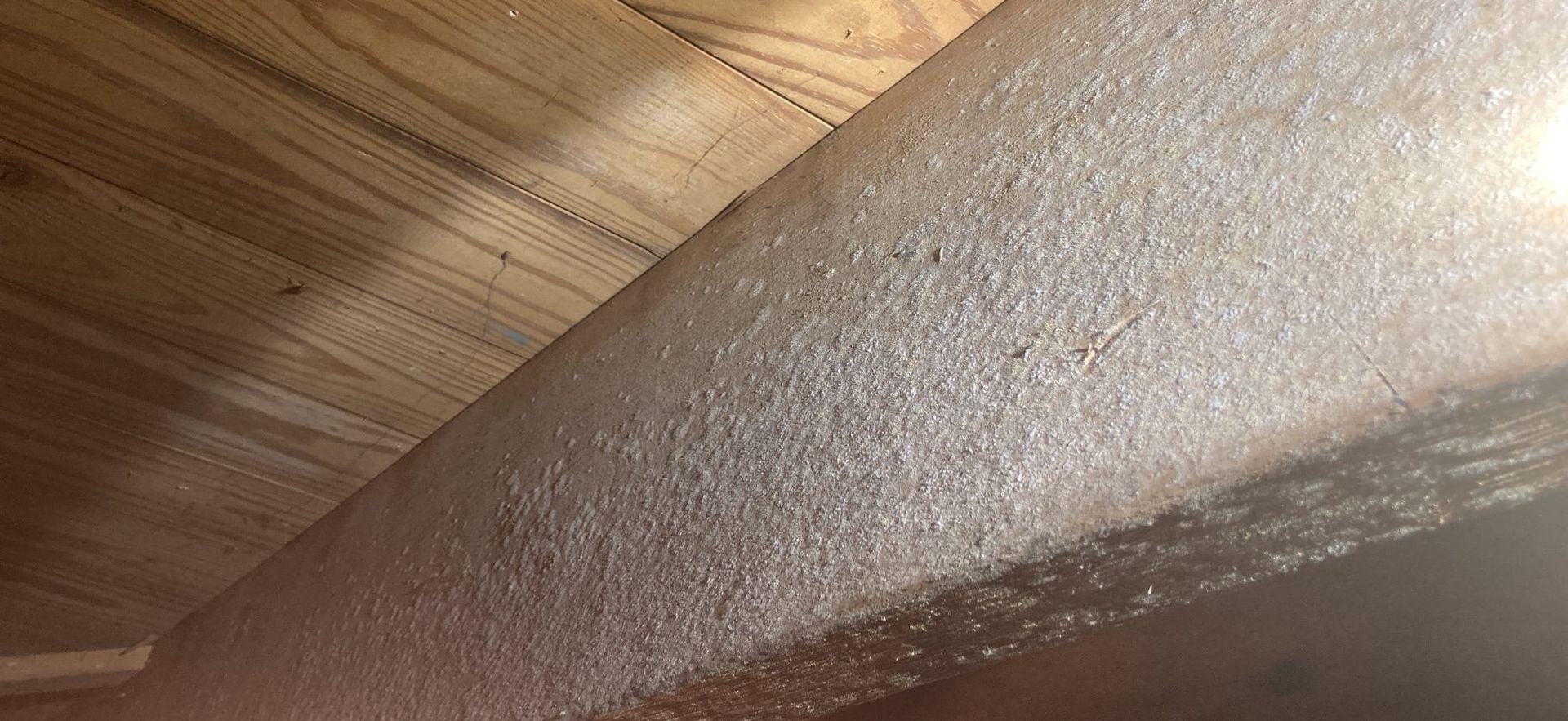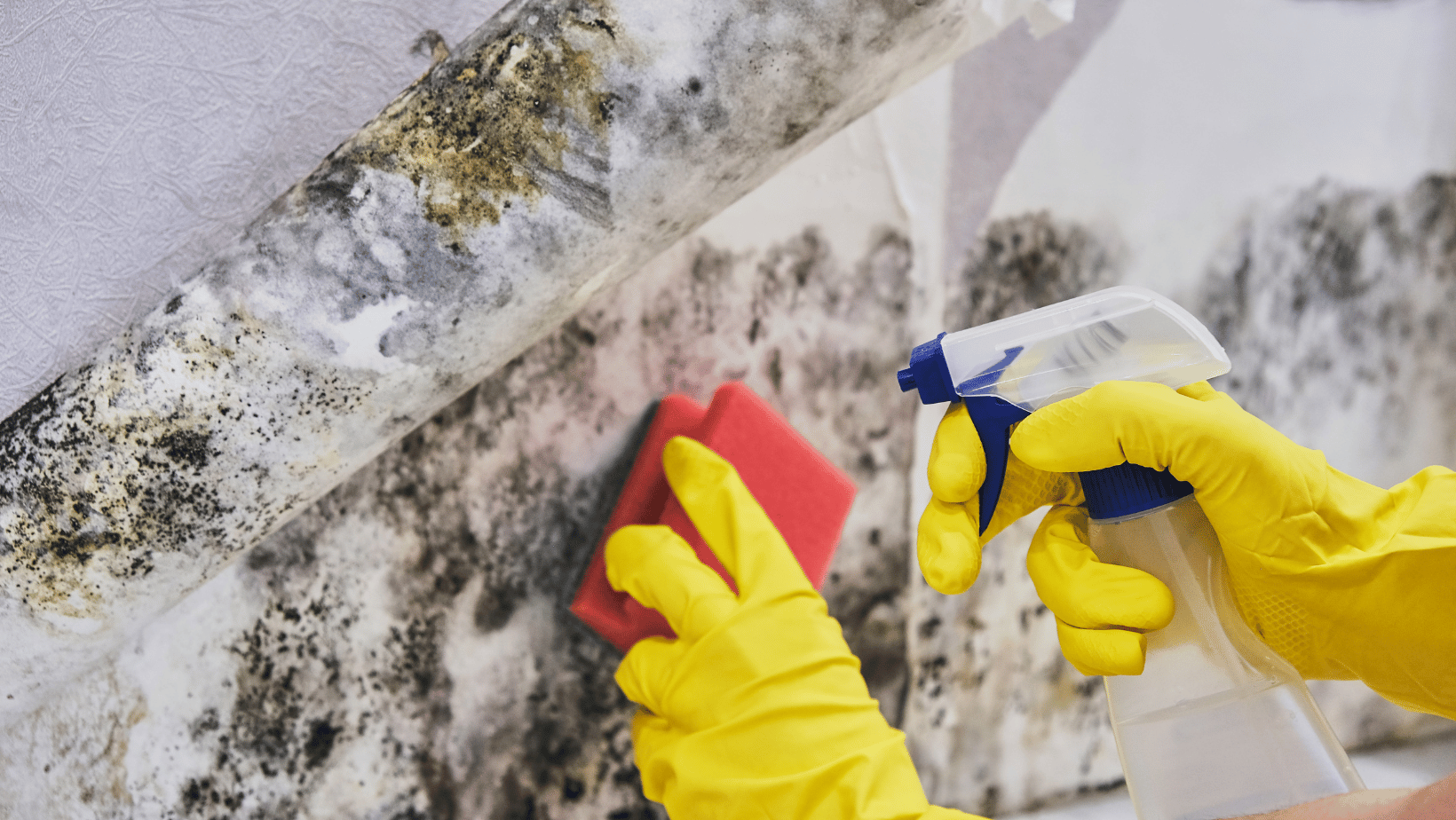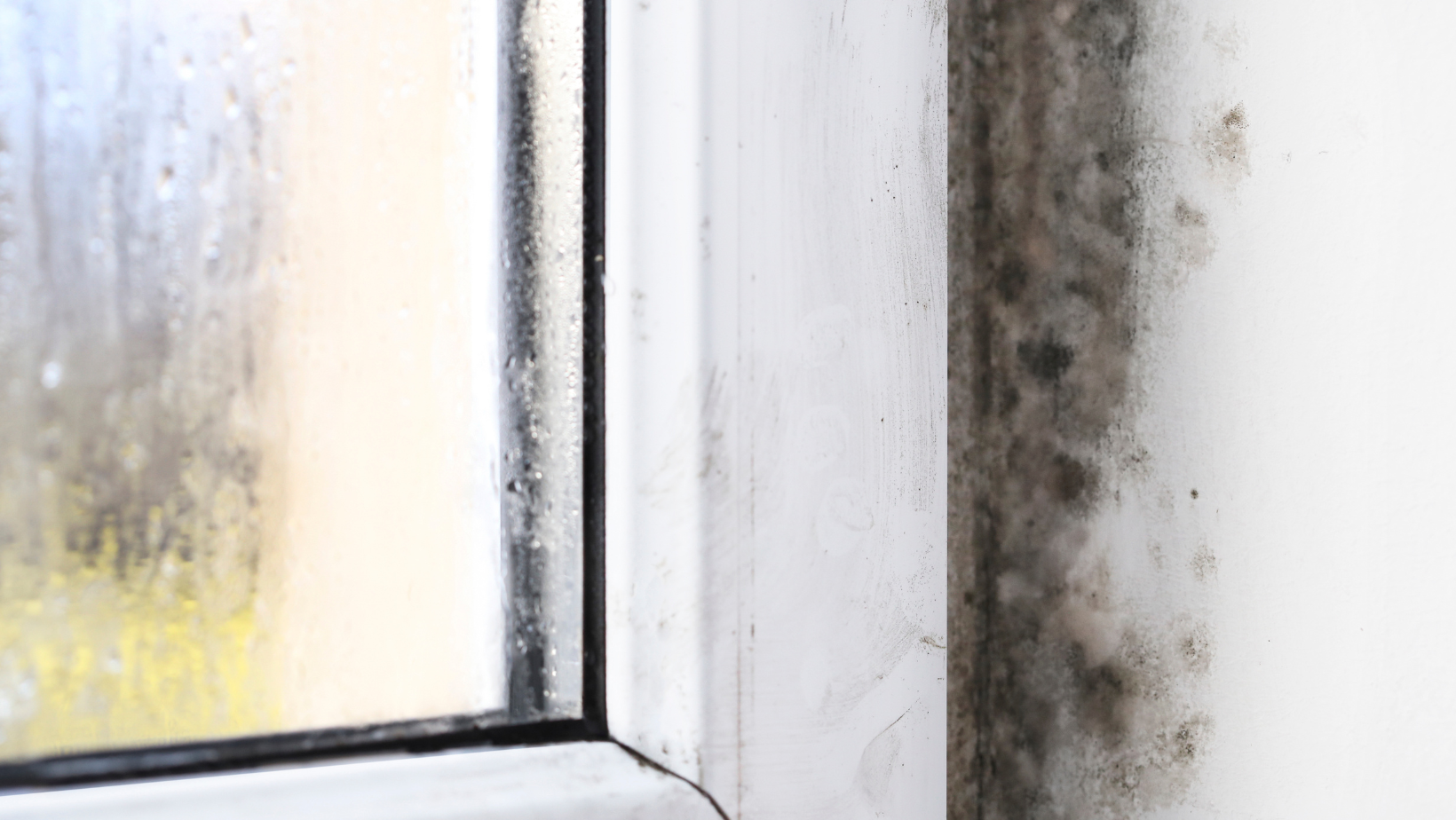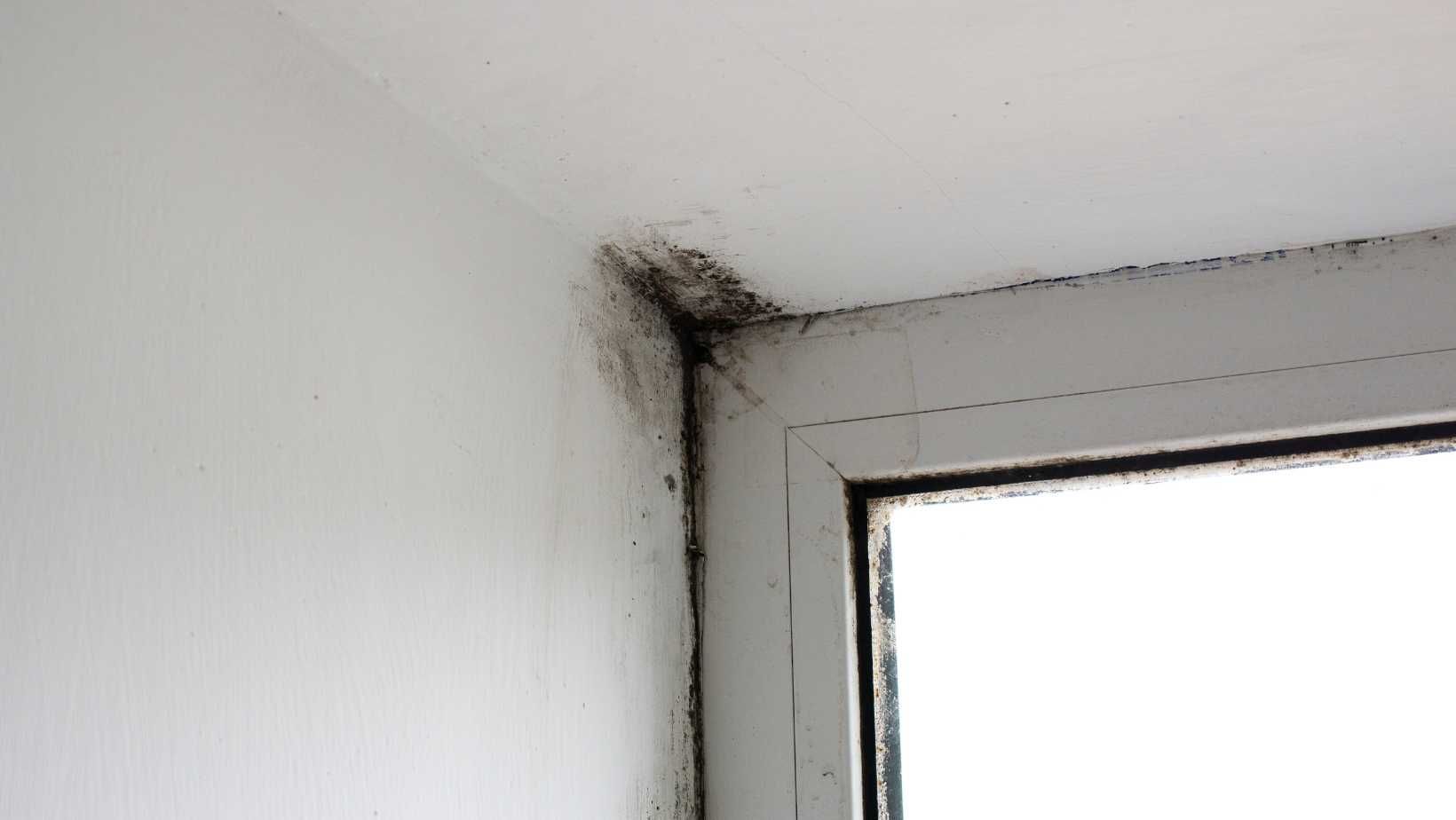Wondering why there’s mold on your Louisiana crawl space floor joists?

Curious why mold developed on your Louisiana crawl space floor joists?
Mold development on crawl space floor joists is a frequently encountered issue by Louisiana homeowners. The crawl space, being a damp and dark environment, provides an ideal habitat for mold growth. The accumulation of moisture and humidity in this area provides the necessary conditions for mold spores to flourish. Neglecting mold growth on your crawl space floor joists can lead to several problems.
Primarily, mold growth can weaken the structural integrity of your floor joists. The mold can erode the wood fibers in your floor joists, making them brittle and unstable, leading to sagging and other structural problems, necessitating expensive repairs.
Secondarily, mold growth can also pose a health risk to you and your family. The mold spores can disperse through stack effect, causing respiratory issues, allergies, and other health problems, especially in people inhabiting the main living areas of the house.
It's essential to note that the heating and air conditioning ducts can also be a source of mold growth. Uninsulated Louisiana ducts are prone to condensation, which eventually evaporates or drips to the ground. These water vapors rise up and deposit damp air onto the floor joists and subfloor, leading to mold growth throughout the crawl space.
If you suspect mold growth on your Louisiana crawl space floor joists, it's imperative to have it inspected and remediated expeditiously to prevent further damage and health risks.
Some of the most frequent reasons for mold growth on your crawl space floor joists include:
- High humidity
- Rising ground-water vapors from exposed dirt floor
- Lack of proper ventilation and/or dehumidification
- Improper/insufficient insulation
- Condensation from pipes and ducts
- Water leak from above
- Flooding

Misconceptions About Mold Growth and How to Prevent It in Your Louisiana Crawl Space
Despite common assumptions, water damage or leaks are not the sole causes of mold growth. In particular, Louisiana crawl space floor joists are prone to mold development due to inadequate air circulation or high humidity levels. The presence of rising ground water vapors compounds the issue, creating a conducive environment for mold growth in the sub-floor and floor joists. It's essential to note that even incorrect insulation can lead to moisture-related complications such as condensation. Over-insulation can also impede proper airflow and ventilation in the crawl space, making it susceptible to mold growth.
If you're dealing with mold in your Louisiana crawl space, it's important to act fast. Here are some steps to follow:
- Contact a reputable mold inspection and/or remediation company that services your area.
- Have them inspect the area and prepare a scope of work that outlines the steps necessary to safely remove the mold.
- Ensure that the chosen mold remediation company will be removing mold from the exposed and accessible surfaces in the crawl space (not just “treating” the mold in place).
- Ask about their mold remediation process, specifically for crawl spaces.
- Have the company make recommendations for preventing mold from returning to your crawl space floor joists.
Here’s DryMax Mold's typical mold remediation process for Louisiana homes and businesses:
- Containment of the affected areas.
- Removal of unsalvageable, mold-contaminated building materials.
- Hepa vacuuming exposed surfaces.
- Application of concentrated hydrogen peroxide agent to “boil” embedded mold roots from the exposed surfaces.
- Physical scrubbing and wiping mold spores from exposed surfaces.
- Application of a people-and-pet safe antimicrobial agent on exposed surfaces.
- Re Hepa-vacuum exposed surfaces (using new brush tips).
- Have surfaces tested to confirm proper cleanup.
- Ensure that all cleaned framing and materials have normal moisture content.
- Apply clear, mold resistant coating to wood framing and building materials.
Is it Possible to Sell a House with Mold on the Crawlspace Floor Joists?
If you're selling your property, it's unlikely that mold will be overlooked by prospective buyers, unless you advertise the property "as is." Mold inspections are now commonplace and many homebuyers are well-educated about the issue. If mold is discovered during a home inspection, don't worry; it can be cleaned. Contact a reputable mold remediation contractor like DryMax Mold who guarantees their work.
If you suspect mold growth in your Louisiana crawl space, it is important to have it inspected and remediated by a licensed, certified, mold professional. This will prevent further damage to your home and ensure the health and safety of your family.
To contact a mld remediation expert at DryMax Mold, click here.
You might also like
DryMax Mold Blogs




